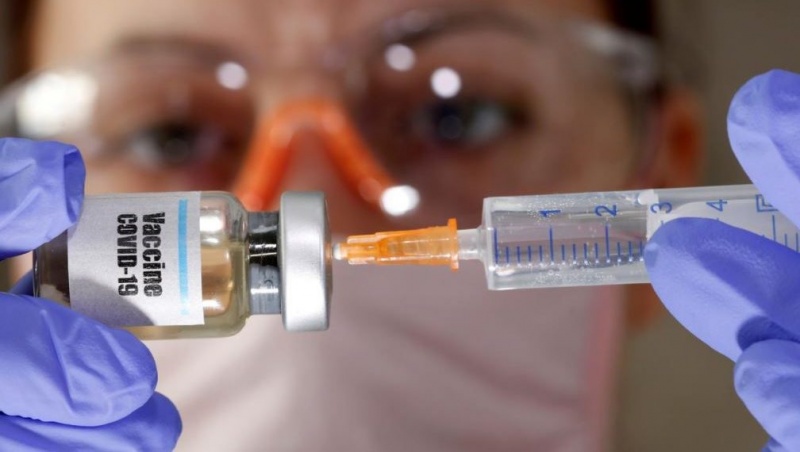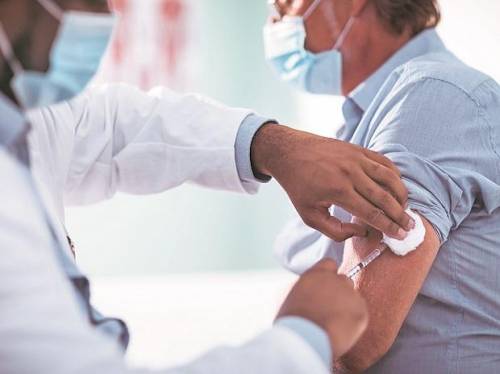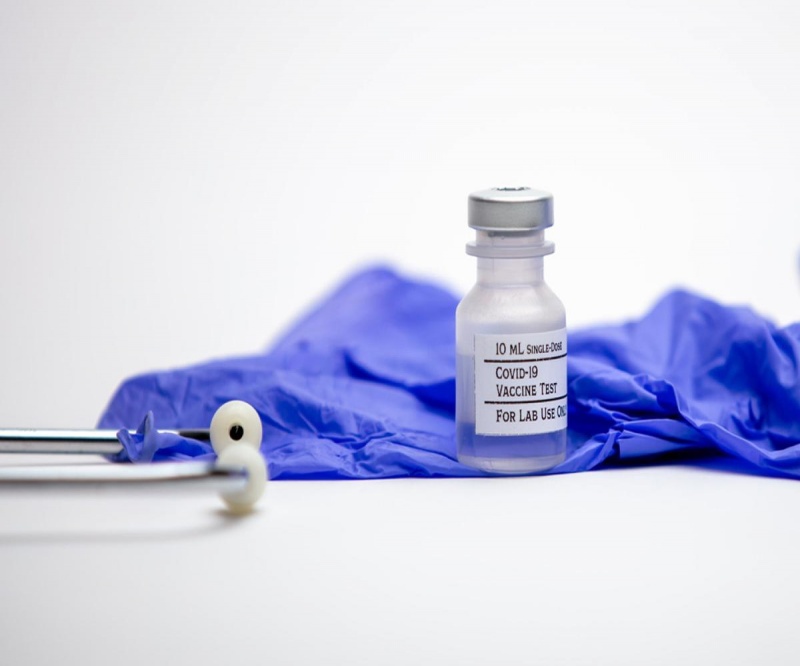How to register for corona vaccination in India: Your step-by-step guide
The union Minister of Health, Harsh Vardan, recently announced that vaccination in its first phase for priority groups beneficiaries in all states will be free.
- by B2B Desk 2021-01-04 06:11:01
The government has started the dry round of Covid-19 vaccines in most states. Soon, a part of the population will receive the first vaccine. Preparation for dosing at vaccination centers, logistical requirements, and other arrangements are in full swing. DCGI, the nation's largest drug regulator, has approved a COVID-19 vaccine from Oxford Covishield and Covaxin from Bharat Biotech for use in restricted emergencies.
The union Minister of Health, Harsh Vardan, recently announced that vaccination in its first phase for priority groups beneficiaries in all states will be free. He urged people not to be fooled by rumors about the safety and efficacy of the COVID-19 vaccine. "We are not going to compromise any protocol before a vaccine is approved," Vardhan said, emphasizing that vaccine doubt was a problem even when the country started a polio campaign, but "we must remember its success."

Here you will find everything you need to know about the largest vaccination campaign in India and how to register as a beneficiary:
Who will get the vaccine first?
Health workers
According to the recommendations of the National Team of Experts in Vaccine Management for Covid-19 (NEGVAC), there will be millions of health workers working with both government and private hospitals, the first to be vaccinated.
The priority group is further divided into subcategories such as frontline workers, Integrated Child Development Services (ICDS) workers, nurses and supervisors, medical staff, medical officers, support staff, and medical students.
All data has been collected from healthcare facilities and uploaded to Co-WIN, the digital platform that will be used to effectively disseminate and expand the Covid vaccine distribution system mechanism.
Frontline workers
Two million rupees are front-line workers who work with the central and state police services, the armed forces, the civil defense organization, disaster management, cleaning staff, prison staff, municipal workers, and the revenue officials who work with surveillance for Covid-19 and other associated activities.
Workers associated with the state government and the ministries of defense, urban planning, and housing will also receive the vaccination in the first phase.

People over 50
This group will be divided into people over 60 years of age and people over 50 with comorbidities. The most recent electoral list for the assembly or Lok Sabha elections will be used as a reference to determine the population to be vaccinated.
Age will be calculated based on the cutoff date of January 1, 2021, and anyone born on or before January 1, 1971 will fall into this category.
Regions with a high incidence of Covid-19
States and UTs may, at their discretion, carry out priority deployment of vaccines in geographic areas where infection is high.
The remaining population
Population under 50 years of age with comorbidities based on the evolution of the epidemiological situation such as diabetes, cancer, hypertension, lung disease, etc., and finally the rest of the population based on the epidemiology of the disease and the availability of vaccines.
How to register for vaccination at the session site
Common Service centers need to be utilized for self-registration and identity certification of the general population. The self-registration module will be made available in the later phases of implementation.
Individuals can select the method of authentication from the following methods
Biometric: With this demographic details of the individual from name to a permanent address in Aadhaar card will autofill the platform.

OTP Authentication: An OTP will be sent to the registered mobile number with an Aadhaar card. If the OTP authentication is successful, the demographic details of the individual as per the Aadhaar will auto-populate.
Demographic Authentication: An individual can also enter all demographic details manually i.e. Name, DoB, gender and select Demo Authentication. A green tick will appear confirming the same.
An individual interested to register will be required to provide a photo identity from one of the following:
- Aadhaar Card;
- Driving License;
- Health Insurance Smart Card issued under the scheme of Ministry of Labour;
- MNREGA Job Card;
- Official identity cards issued to MPs/MLAs/MLCs;
- PAN Card;
- Passbook issued by Bank/Post Office;
- Passport;
- Pension Document;
- Service Identity Card issued to employees by Central/State Govt./PSUs/ Public Limited Companies;
- Smart Card issued by RGI under NPR;
- Voter ID
Photo identity can either be uploaded on Co-WIN system (in PDF, JPG, or PNG file formats) or can be pulled from the existing Digi Locker account of the individual
Once registered, the date and time will be allocated for vaccination. There will be no spot registration facility and only pre-registered beneficiaries will be allowed to proceed with vaccination.
District Collector (DC)/District Magistrate (DM) with the support of the District Immunization Officer will link the sessions sites, vaccinators, supervisors, and beneficiaries and decide the dates and time for conducting the vaccination session. The respective district administration will approve the beneficiaries for session and site allocation. Co-WIN has inbuilt monitoring and reporting mechanism.
How the sessions have been planned
An ideal session site should have three demarcated rooms/areas:
- Waiting Room/Area;
- Vaccination Room; and
- Observation Room
How was the vaccination team organized?
Each session will be managed by a team of 5 members with specific responsibilities:
Vaccination Officer-1: Responsible for previously verifying the status of the beneficiary registry and verifying the identification card before entering the room / waiting area. Vaccination Officer-1 will assist with waiting lists / crowd management
Vaccination Officer 2: Responsible for validating / verifying the document in the Co-WIN system (Health / ICDS / other government departments as election form)
Vaccination Officer: Responsible for vaccinating the beneficiaries (Doctors (MBBS / BDS / AYUSH), General Nurse, Pharmacist, ANM, LHV).
Vaccination Officer 3 & 4: Responsible for managing crowds, ensuring a 30 minute wait, monitoring for any symptoms of side effects after vaccination, and directing unregistered recipients
Vaccination that takes place in health facilities, government and private, where a medical officer or doctor is available is defined as a fixed meeting place. Schools and community hallways will serve as sites for awareness sessions, while special mobile teams will be present for remote areas or migrant populations and international border areas.
All COVID-19 vaccination sessions will take place from 9 a.m. at 5 p.m.
Also Read: Debt funds: Know when you should invest in liquid funds
POPULAR POSTS
Loan EMIs to Drop as RBI Slashes Repo Rate - Full MPC December 2025 Highlights
by Shan, 2025-12-05 11:49:44
Zoho Mail vs Gmail (2025): Which Email Platform Is Best for Businesses, Startups, and Students?
by Shan, 2025-10-09 12:17:26
PM Modi Launches GST Bachat Utsav: Lower Taxes, More Savings for Every Indian Household
by Shan, 2025-09-24 12:20:59
$100K H-1B Visa Fee Explained: Trump’s New Rule, Clarifications & Impact on Indian Tech Workers
by Shan, 2025-09-22 10:11:03
India-US Trade Deal Soon? Chief US Negotiator Arrives in Delhi as Talks Set to Begin Tomorrow
by Shan, 2025-09-15 11:54:28
Modi Meets Xi: Trump’s Tariffs, Strategic Autonomy, and the Future of Asia’s Power Balance
by Shan, 2025-09-03 06:40:06
Google Claims Gemini AI Uses Just ‘Five Drops of Water’ Per Prompt, Sparks Debate
by Shan, 2025-08-22 12:34:27
RECENTLY PUBLISHED

Pine Labs IPO 2025: Listing Date, Grey Market Premium, and Expert Outlook
- by Shan, 2025-11-05 09:57:07

The Agentic Revolution: Why Salesforce Is Betting Its Future on AI Agents
- by Shan, 2025-11-05 10:29:23

Top 10 Insurance Companies in India 2026: Life, Health, and General Insurance Leaders Explained
- by Shan, 2025-10-30 10:06:42

OpenAI Offers ChatGPT Go Free in India: What’s Behind This Big AI Giveaway?
- by Shan, 2025-10-28 12:19:11

Best Silver Investment Platforms for 2025: From CFDs to Digital Vaults Explained
- by Shan, 2025-10-23 12:22:46





 Subscribe now
Subscribe now 